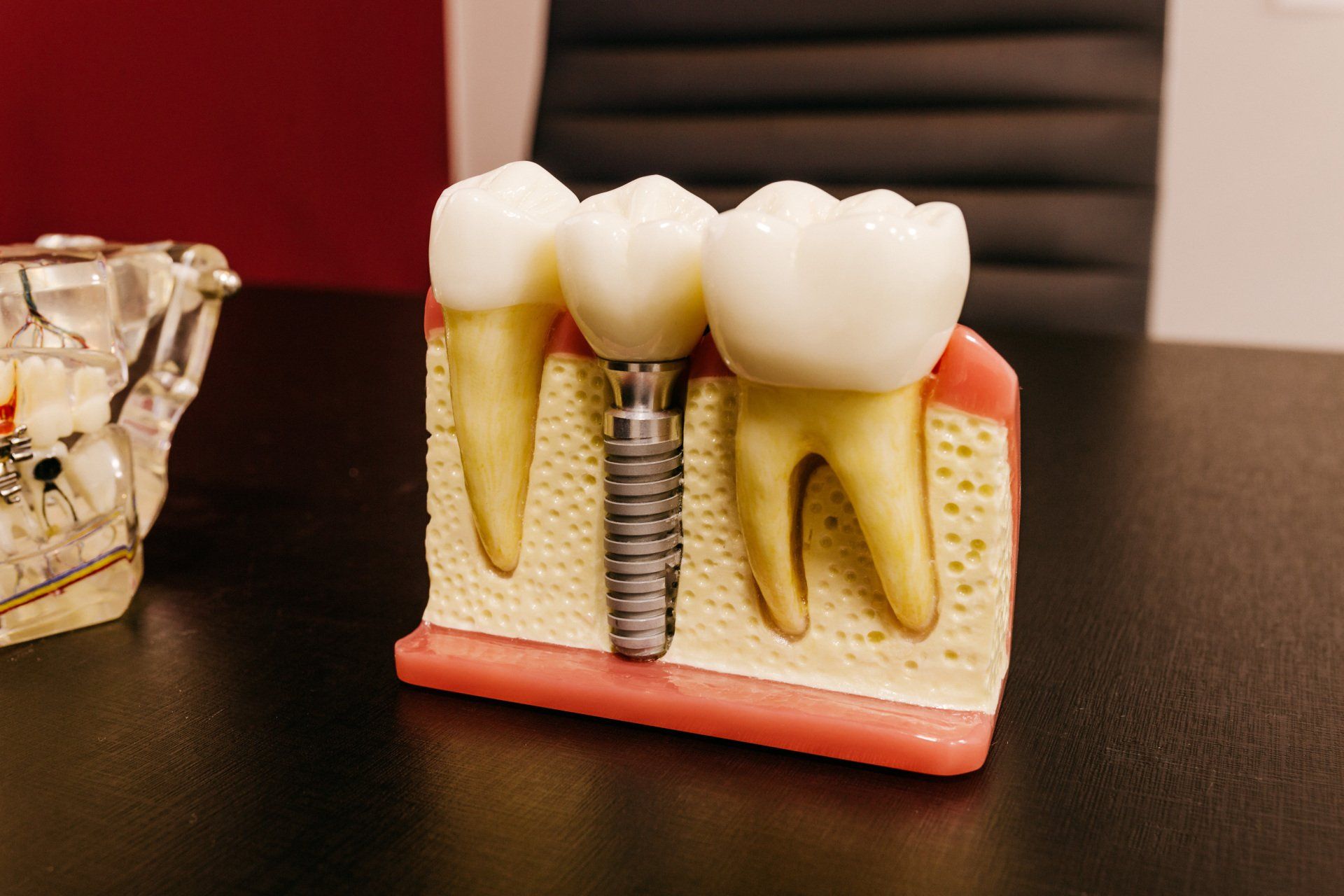Dental Bridges
Roll back the years and fill the gap in your teeth with dental bridges!
Missing one or more teeth? Consider dental bridges. They restoratively replace missing teeth and restore form to your smile by replacing the gap left behind with a prosthetic that is custom-made for you in order to meet the purpose of restoring natural bite, as well as providing comfort.

Why choose Wexford Dental for your implants?
The best way to get the smile you want.
List of Services
-
It's Done Right HereList Item 1
The entire process, from surgical placement to restorative work is done right here at our location.
-
It's Done by SpecialistsList Item 2
Each and every step is done by specialists that have extensive experience.
-
It's AffordableList Item 3
We pride ourselves in providing the best rates for dental implants. You can feel confident that you are getting the best solution for you with transparent pricing and financing options.
If you want a natural replacement for your missing tooth that feel like your own teeth then implants are for you.
What are the advantages of dental implants?
Dental Implants are a popular choice for replacing missing teeth, mainly because of a few advantages they have, including:
- Dental implants look and feel like your own teeth. And because they are designed to fuse with bone, they become permanent.
- Dental implants allow you to speak without worry that teeth might slip.
- Dental implants function like your own teeth, allowing you to eat your favorite foods with confidence and without pain.
- Dental implants can give you back your smile and help you feel better about yourself.
- Because nearby teeth are not altered to support the implant, more of your own teeth are left intact, improving long-term oral health. Individual implants also allow easier access between teeth, improving oral hygiene.
- Implants are very durable and will last many years. With good care, many implants last a lifetime.

Get your implants in 5 steps
Every patient is unique and so is our solution but our dental implant services can be generally broken down to 5 steps. If you have any questions regarding these steps and dental implants in general, don't hesitate to give our team a call. We're always here to help you find the best solution!
Every smile is unique.
So is every budget.
Cost is often an important topic to our patients when it comes to dental implants. Unfortunately, it is quite difficult to provide an accurate answer as it varies greatly depending on each individual case. That's why we offer a no-pressure, free consultation. During the consultation, the dentist will explain more about different options and works with the patient to develop the best solutions for their specific needs. At the end of the consultation, you will find out about the costs of dental implants and payment options. Our plans start from $2499.
Our partnership with LendCare allows us to offer you flexible financing options so you can begin treatment sooner rather than later. Low monthly payments are accepted by direct deposit, check deposits, and debit card transactions.
Options include:
- No down payment
- Loan terms from 36 to 60 months
- Merchant rates as low as 1%
| Ahmad pays | $51/mo for 36 months |
|---|---|
| Our quote | $3401 |
| Insurance covers | $1600 |
| Remaining balance | $1801 |
| Maria pays | $125/mo for 24 months |
|---|---|
| Our quote | $3001 |
| Insurance covers | Does not cover |
| Remaining balance | $3001 |
| George pays | $200/mo for 24 months |
|---|---|
| Our quote | $7101 |
| Insurance covers | $2301 |
| Remaining balance | $4801 |
These cases are examples only.
Are you ready to get the smile you love?
Implants are the most natural replacement for missing teeth. Book an appointment or give us a call to learn more about dental implants and financing options!


